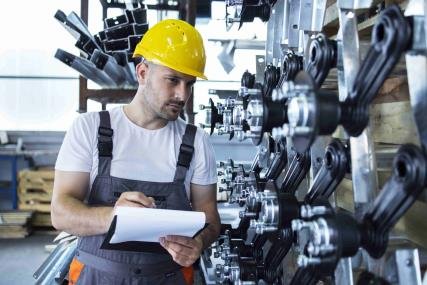Maximising Efficiency and Quality with Fabrication of Steel

Fabricating steel is essential in numerous industries, from construction to automotive manufacturing. The benefits of this versatile material and its fabrication process are multiple, making it a foundation in modern engineering and architecture. Its superior strength and durability are reasons it is preferred across various industries. Understanding the advantages of fabricating steel can illuminate why it is a preferred choice for many applications.
Superior Strength
One of the primary advantages of steel fabrication is the exceptional strength and durability of the material. Steel, by nature, is solid and capable of withstanding significant stress and pressure without bending or breaking. This property makes it ideal for constructing buildings, bridges, and other structures that require robust and long-lasting materials. The fabrication process further enhances these qualities by allowing for precise shaping and joining, ensuring the integrity and stability of the final product.
Cost-Effective Solutions
Fabrication offers a cost-effective solution for many projects. The efficiency of the process, coupled with the material’s longevity, results in lower overall costs. Steel structures often require less maintenance and repair over time than other materials, translating into savings on labour and materials. Additionally, steel’s recyclability means that waste can be minimised and resources can be reused, contributing to a more sustainable and economical construction practice.
Versatility in Design
Another massive advantage is the versatility it offers in design. Steel can be moulded into various sizes, accommodating multiple architectural and engineering requirements. This flexibility allows designers and engineers to innovate and create complex structures that might not be possible with other materials. Whether a sleek modern skyscraper or an intricate industrial machine, fabrication provides the tools to bring creative visions to life.
Precision and Customisation
Steel fabrication affords unparalleled precision. Advanced techniques and machinery enable the creation of components with exact specifications, ensuring that each piece fits perfectly. This precision is crucial in industries where even the slightest deviation can lead to massive issues. Customisation is also a key benefit, as fabrication allows for producing unique, tailor-made components to meet specific project needs.
Speed and Efficiency in Construction
Fabricating steel can significantly improve the speed and efficiency of construction projects. Prefabricated steel components can be manufactured off-site. They can then be quickly assembled on-site, reducing construction time and minimising disruptions. This rapid assembly process is particularly beneficial in projects with tight deadlines or those that need to minimise on-site labour and equipment costs.
Enhanced Safety
Safety is essential in any construction or manufacturing process, and steel fabrication offers significant advantages. Steel’s strength and reliability reduce the risk of structural failure, protecting both the workers involved in the construction process and the structure’s end-users. Moreover, modern fabrication techniques adhere to stringent safety standards, ensuring the final product meets all necessary safety requirements.
Various Applications
Steel fabrication’s applications extend across various industries, demonstrating its versatility and importance. In the construction industry, it is used for building frameworks, beams, and columns that form the backbone of skyscrapers, bridges, and residential buildings. In the automotive sector, it is crucial to manufacture vehicle frames and components that ensure passenger safety and vehicle durability. Other industries, such as shipbuilding, aerospace, and manufacturing, also rely heavily on fabrication to create high-quality, reliable products.
In conclusion, fabricating steel offers numerous benefits, making it an indispensable part of modern construction and manufacturing. Additionally, the speed and efficiency of the construction process, coupled with enhanced safety measures, further underscore the advantages of using fabrication in numerous applications. By leveraging these benefits, industries can achieve higher-quality, more reliable, and sustainable project results.